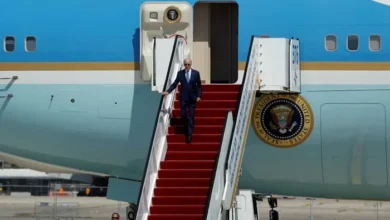Putin Holds Talks with Wagner Mercenary Leader Prigozhin Following Failed Uprising

Russian President Vladimir Putin recently engaged in talks with Yevgeny Prigozhin, the leader of the Wagner mercenary group, shortly after denouncing their failed uprising as an act of treason. The Kremlin confirmed the meeting, stating that Putin spent nearly three hours discussing the events of the uprising with Prigozhin and other top Wagner commanders. This unexpected development adds another layer of complexity to the crisis, which posed one of the most significant threats to Putin’s longstanding rule.
The Meeting and Putin’s Response:
On June 29, Putin met with Prigozhin and invited 35 individuals, including the management of the private military company, to the Kremlin for discussions. Dmitry Peskov, the president’s spokesman, revealed that Putin listened to the commanders’ explanations regarding the mutiny that occurred on June 24 and provided his assessment of the crisis. According to reports, Putin also presented the Wagner forces with alternative options for employment and combat operations.
Significance of the Meeting:
The meeting between Putin and Prigozhin holds great significance due to its timing and the events leading up to it. The failed uprising orchestrated by the Wagner mercenary group had posed a serious threat to Putin’s rule. When news of the rebellion broke, Putin had promised severe consequences for the leaders of Wagner. He later addressed the nation, condemning the organizers of the mutiny for betraying their country and its people.
The Uprising and its Aftermath:
During the failed uprising, Prigozhin’s forces advanced within 200 kilometers of Moscow with little opposition before the rebellion was called off under a deal brokered by Belarus President Alexander Lukashenko. In an agreement with Putin, Prigozhin and his men were allowed to move to Belarus, and the criminal cases against them for armed mutiny were dropped.
The Return of Chief of the General Staff:
Shortly after the Kremlin’s statement regarding the meeting, Russia’s Chief of the General Staff, Valery Gerasimov, appeared on state television for the first time since the abortive mutiny. Gerasimov, responsible for Russia’s war operations in Ukraine, was shown in a brief video receiving battlefield reports from officials. Putin had appointed Gerasimov as the overall commander of Russia’s invasion force in January, replacing General Sergei Surovikin, who has not been seen in public since the Wagner rebellion ended.
Prigozhin’s Accusations:
Prigozhin, the founder of the Wagner mercenary group, had aimed to overthrow Gerasimov and Defense Minister Sergei Shoigu. He blamed them for numerous failures during the war and accused them of attempting to dismantle his mercenary organization.
Read More: The Rising Threat of AI Bots Impersonating Real People on Social Media
Conclusion:
The meeting between President Putin and Yevgeny Prigozhin, the leader of the Wagner mercenary group, following the failed uprising adds a new dimension to the crisis. As the situation continues to unfold, the repercussions and potential implications of this extraordinary meeting will undoubtedly draw significant attention both domestically and internationally. The aftermath of the uprising and the shifting dynamics within Russia’s military command structure raise questions about the stability and future direction of the country under Putin’s leadership.


